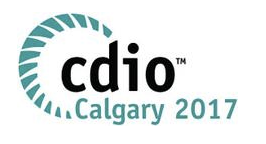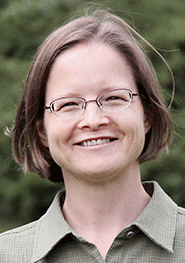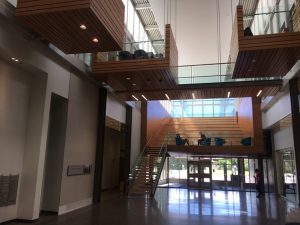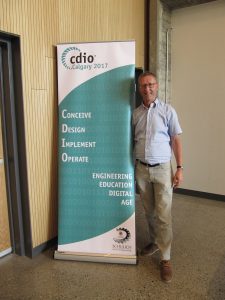By Jan van der Veen and Lisa Gommer, University of Twente
 Here are some highlights of this year’s world conference of CDIO, the organisation that connects Technical Universities that apply project based learning in their curriculum. The conference brings together a nice combination of teaching staff, educational experts and programme managers.
Here are some highlights of this year’s world conference of CDIO, the organisation that connects Technical Universities that apply project based learning in their curriculum. The conference brings together a nice combination of teaching staff, educational experts and programme managers.

Edward Crawley
Maker projects
Edward Crawley (MIT) discussed the latest plans of MIT’s engineering school now opting for modules that they call ‘project centric’. In their New Engineering Education Transformation (NEET) approach foundational content is provided in segments that feed the student teams in their work on the projects. For these segments they will use both digital formats as well as traditional lecturing. Throughout the curriculum the emphasis will be on ‘maker projects’ in which the engineering students together produce all sorts of ‘machines’ while staff are coaching them on interpersonal and professional skills in the process.
Open source simulations

Kathy Perkins
Kathy Perkins (Boulder, Colorado) used her keynote to show how PhET simulations are best used in secondary schools and undergraduate programmes. As these open source simulations can easily be linked to separate languages, the worldwide use has increased to 100 million times per year, quite amazing. Simplification of complex experiments and visualisation of phenomena that are invisible to the human eye are among the success factors. Simulations can be used in self-study mode, pairwise as in many lab experiments or as an active component embedded in lectures. Tasks are preferably open so as not to end with a recipe. In follow-up discussions with Kathy Perkins we concluded that Twente students in teacher training programmes can contribute to the development and testing of new simulations with feedback from the PhET team.
Student motivation
In a workshop Alan Ryan and his colleagues from the University of Limerick discussed sources of motivation for both students and teachers. They asked teachers what aspects of a course they thought would motivate students to learn and what would demotivate them. The same questions were asked to students. Both teachers and students indicated ‘interest and relevance of the subject’ and ‘receiving a high grade or credit’ as the two most motivating factors. For students however, the enthusiasm of the teacher (3rdplace) and his or her positive attitude to the students were also important for motivation (6th place), whereas teachers expected clear objectives and course design to be more important. Looking at demotivating factors, the differences are even bigger. Students indicate that ‘negative feedback or lack of encouragement from the teacher’ and ‘lack of enthusiasm’ were the two main factors for causing demotivation. Teachers expect ‘dislike of the subject area and unclear objectives’ to be the most important factors. Apparently the teacher plays a more important role in student motivation than we tend to think. The way we approach students, the feedback we give and the way we show passion for the subject matter greatly affect the way our students are engaged in learning.

Calgary Campus
Campus
Another highlight relates to the venue of the conference, the campus of the University of Calgary which together with an excellent organisation made the occasion a very pleasant one. Apart from the Olympic Oval with skaters training for next winters competition, in particular the engineering education buildings stands out with respect to their education facilities. The newest engineering building is fully dedicated to the bachelor engineering education courses, projects and labs. Next to these buildings, the Taylor Institute for Teaching and Learning has all facilities for supporting staff development.

Aldert Kamp
4TU.CEE and CDIO
In the closing session Aldert Kamp (TUD / 4TU.CEE Delft chair) was chosen as co-director CDIO. Congratulations Aldert! The University of Twente presented itself as a new CDIO member receiving great interest on the Twente Educational model.




